- Home
- Military & Defense
- Here's everything we know - and don't know - about the Brussels attacks
Here's everything we know - and don't know - about the Brussels attacks
What happened?

A little more than an hour later, a third explosion at the Maelbeek metro station.
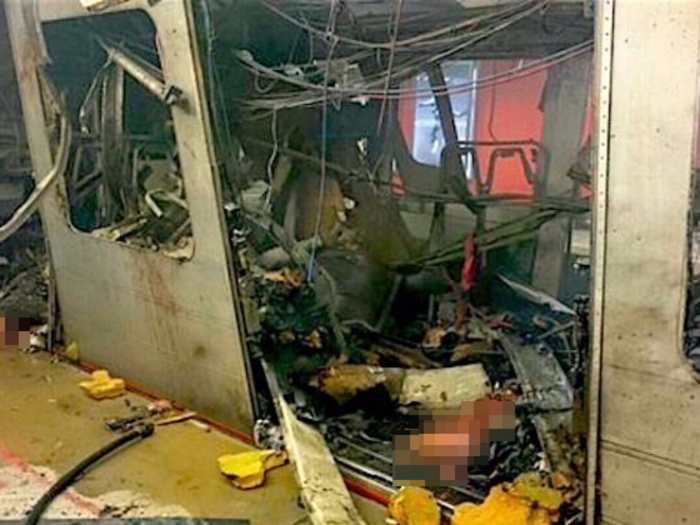
It was not far from several European Union institutions. The explosion killed another 20 people.
In total, approximately 230 people were wounded, officials said.
Here's a map of the explosions:
https://twitter.com/mims/statuses/712274059174813697
The #Brussels attacks in 2 maps, more here: https://t.co/YtdB07k71m pic.twitter.com/IPAf5TwJnR
Why Brussels?
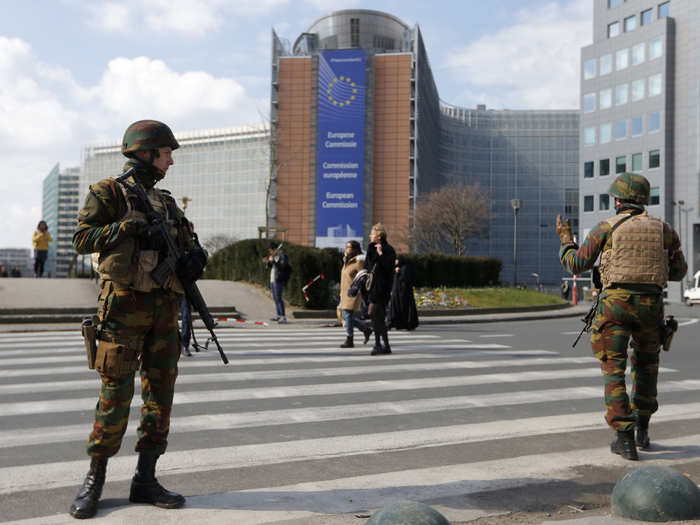
The capital of Belgium is home to the European Union Council, European Commission, European Parliament, and NATO.
Brussels is in many ways regarded as the Washington, DC, of Europe.
And since the November 13 Paris attacks, which resulted in the deaths of 130 people and were carried out by ISIS-affiliated attackers, Brussels has been a focal point in counterterrorism investigations.
It came days after new developments in connection with a prime suspect in the Paris attacks.
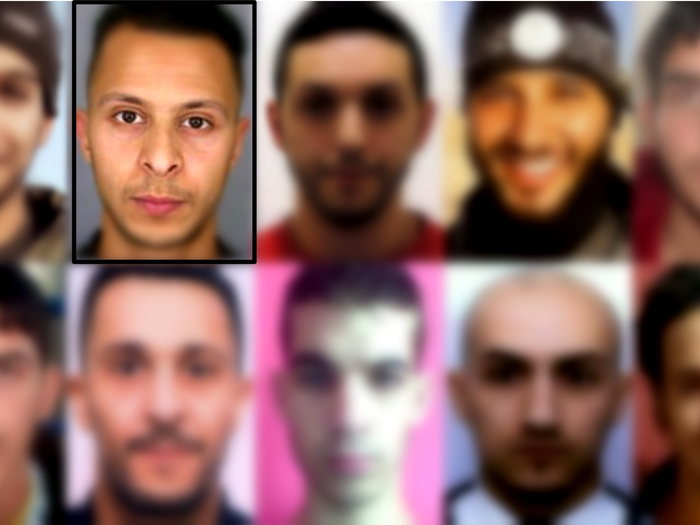
After the attacks in the French capital, European authorities launched an international manhunt for Salah Abdeslam, who fled to Belgium after the massacre.
Abdeslam, the most wanted man in Europe, was wounded and detained during a police raid in the Molenbeek district of Brussels on March 18.
Belgium's interior minister, Jan Jambon, called Molenbeek "the capital of political Islam in continental Europe."
ISIS has claimed responsibility for the attacks.
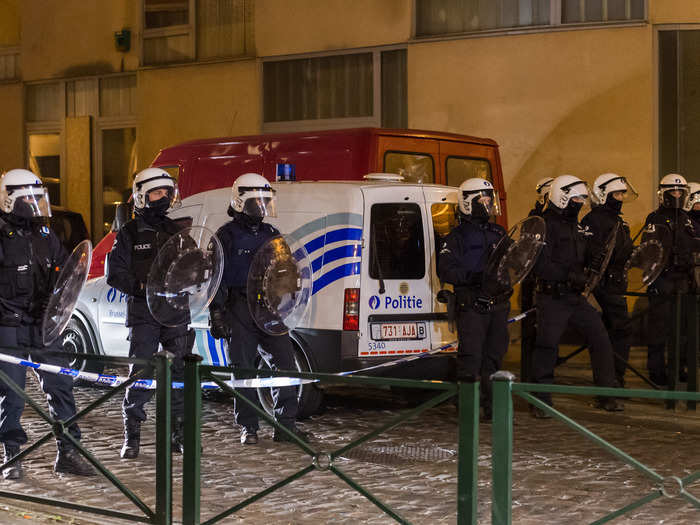
A few hours after the explosions and four days after Abdeslam's arrest, ISIS claimed responsibility for Tuesday's attacks.
According to a 2015 report from The Soufan Group, Belgians have contributed more than 400 fighters to extremist groups in Syria and Iraq.
To date, more than 100 raids have been executed in Belgium.
Belgian police are looking for three suspects in Tuesday's attacks.
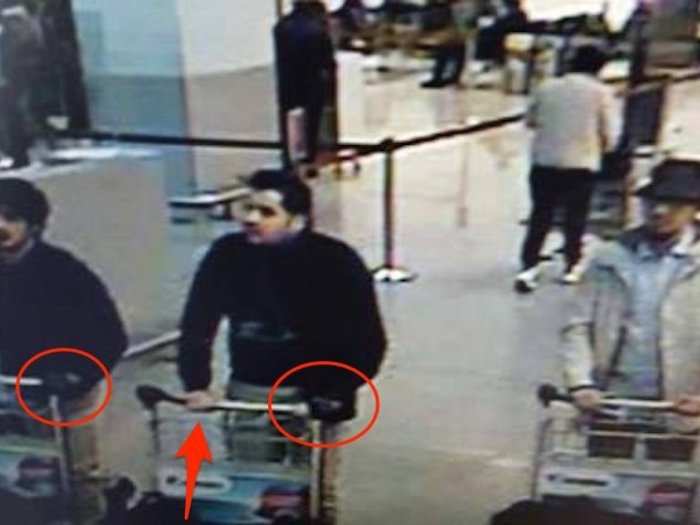
Belgian Federal Police released an image captured from airport-security footage that shows three men suspected to be involved in Tuesday's attacks.
The two men dressed in black are likely to have been suicide bombers, since both are wearing only one glove on their left hand (note red arrows and circled added to photo).
In short, the single glove could have helped them hide a detonator.
Police have said they are hunting for the remaining suspect (far left, wearing a hat).
President Obama condemned the attacks in a speech during his historic visit to Cuba.
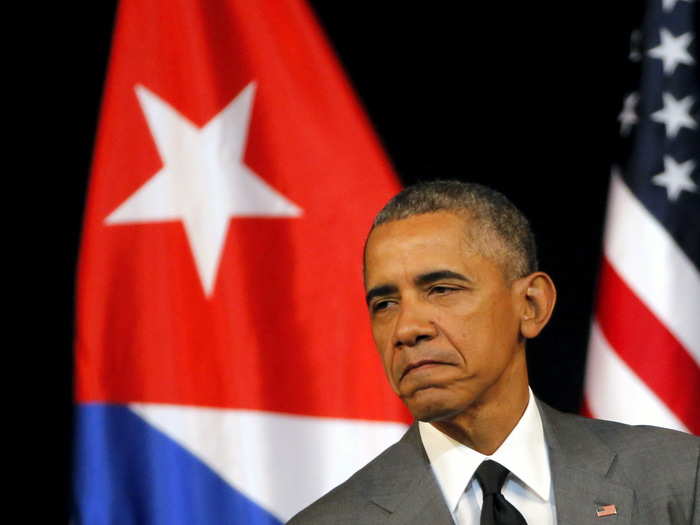
Obama, speaking from Havana, said he condemned "these outrageous attacks" and added that the US would do "whatever is necessary" to bring the attackers to justice.
"This is another reminder that the world must unite, we must be together, regardless of nationality, or race, or faith, in fighting against the scourge of terrorism," he said.
Prior to his speech, Obama called Belgian Prime Minister Charles Michel, according to a White House release.
Other major cities were put on high alert.
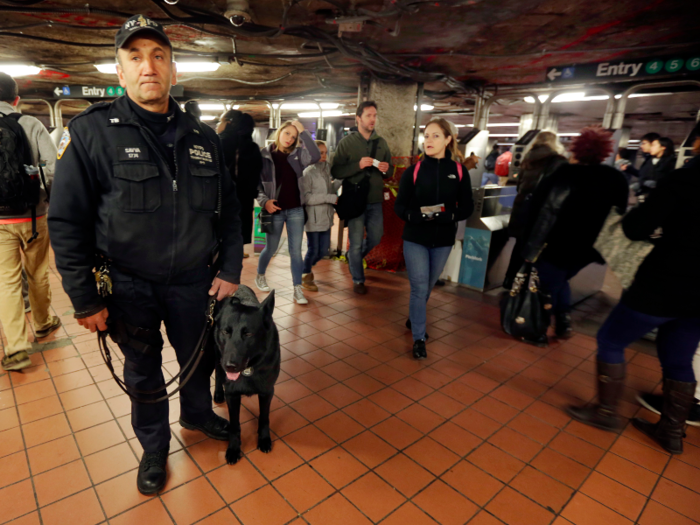
Meanwhile, the Brussels attacks spurred a security increase around the world.
The New York Police Department elevated its presence at mass-transit points, bridges, tunnels and major city landmarks — a standard NYPD response after major terrorist incidents overseas.
Airports throughout the US and around the world were also on high alert.
Flights to and from Brussels Airport, which services approximately 21.9 million annual passengers, are expected to be suspended through Wednesday.
The world expressed solidarity with Brussels.
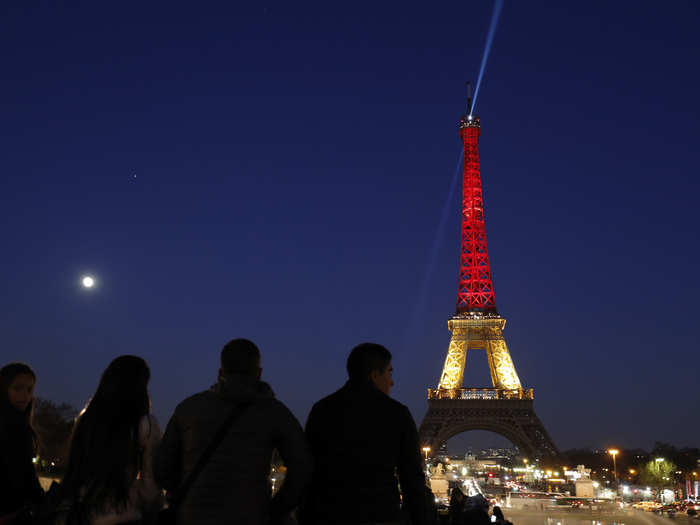
Popular Right Now
Popular Keywords
Advertisement